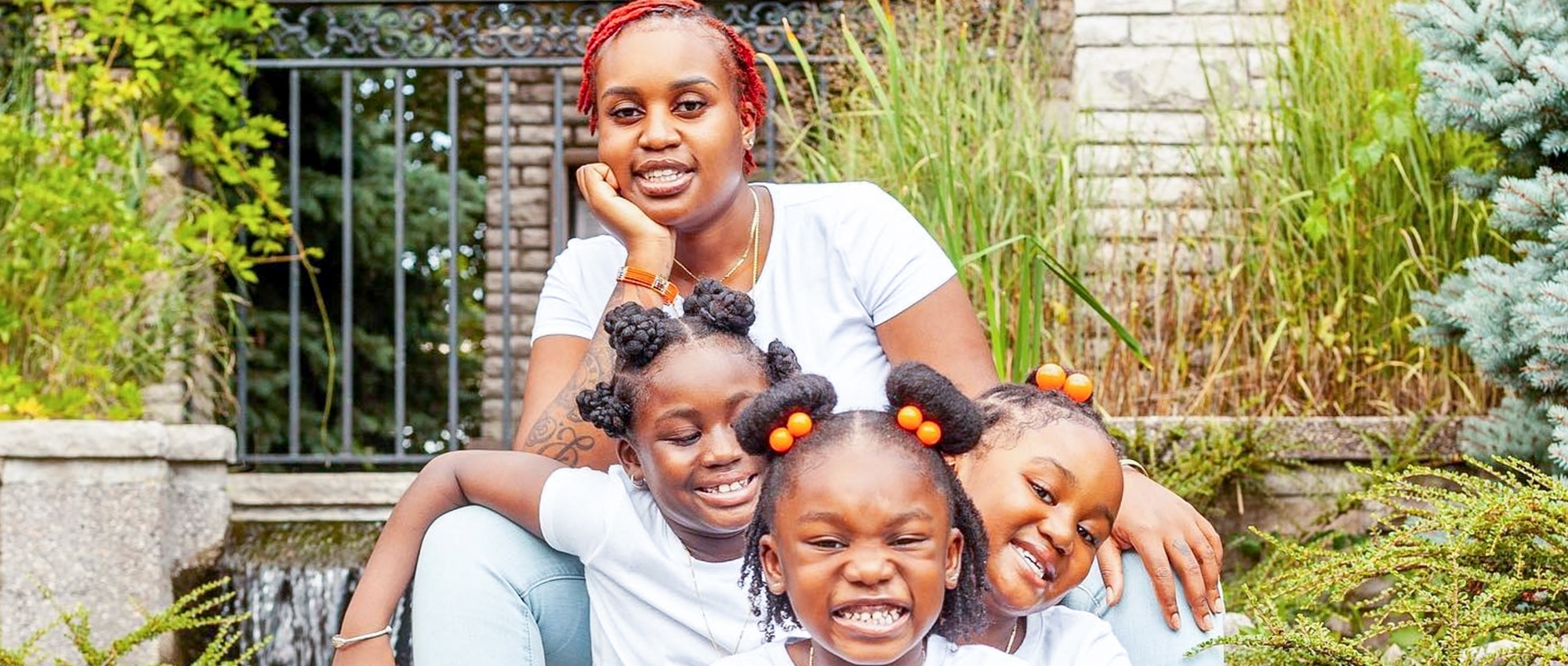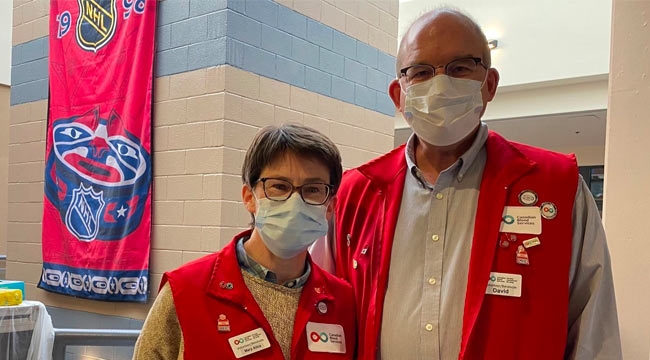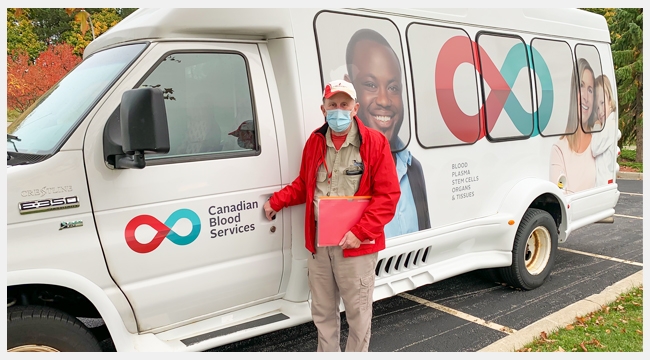‘I desperately need a Black donor to come forward’
Jamaique Rose, a single mother of three with leukemia, urgently needs a stem cell transplant for acute myelogenous leukemia
A note to our readers: Sadly, following her long battle with acute myelogenous leukemia, Jamaique Rose passed away on December 18, 2020. While she fought her disease, she advocated for more people to join Canadian Blood Services Stem Cell Registry. For that, we at Canadian Blood Services are very grateful. We extend our condolences to her loved ones at this difficult time.
Jamaique Rose, a healthcare worker and single mother in Toronto, Ont. is fighting cancer for the second time in four years.
“Four years ago, I had multiple rounds of treatment and fought hard to beat cancer,” says Jamaique. “The disease came back this past summer, and I’m once again fighting for my life.”
Jamaique was first diagnosed with acute myelogenous leukemia (AML) in November 2016, seven months after giving birth to her youngest child. The first sign of the disease appeared after she had a wisdom tooth removed, and her mouth failed to heal in the months following the surgery. At first, doctors thought she had an infection that could be treated with antibiotics, but after a second look they ordered more tests.
“After a second round of blood work and a head CT scan, the doctor told me I had a blood clot at the back of my head, and gave me the worse news of my life. He said I had leukemia,” says Jamaique. “At that time, I was 25 years old.”
Jamaique had no choice but to put her life on hold. She was immediately started on blood thinners and spent weeks receiving treatment at Toronto’s Princess Margaret Cancer Centre. She left her three daughters, the oldest of whom was five at the time, in the care of her mother.
“It was a tough time to be away from my children,” she says. Fortunately, multiple rounds of chemotherapy put the cancer into remission. Jamaique returned to her family, and in May 2018 she also returned to her job as a personal support worker. She says her own experience of illness gave her even more compassion for the patients she helps.
“I see the stress families go through when their loved ones are unwell,” says Jamaique. “It’s devastating.”
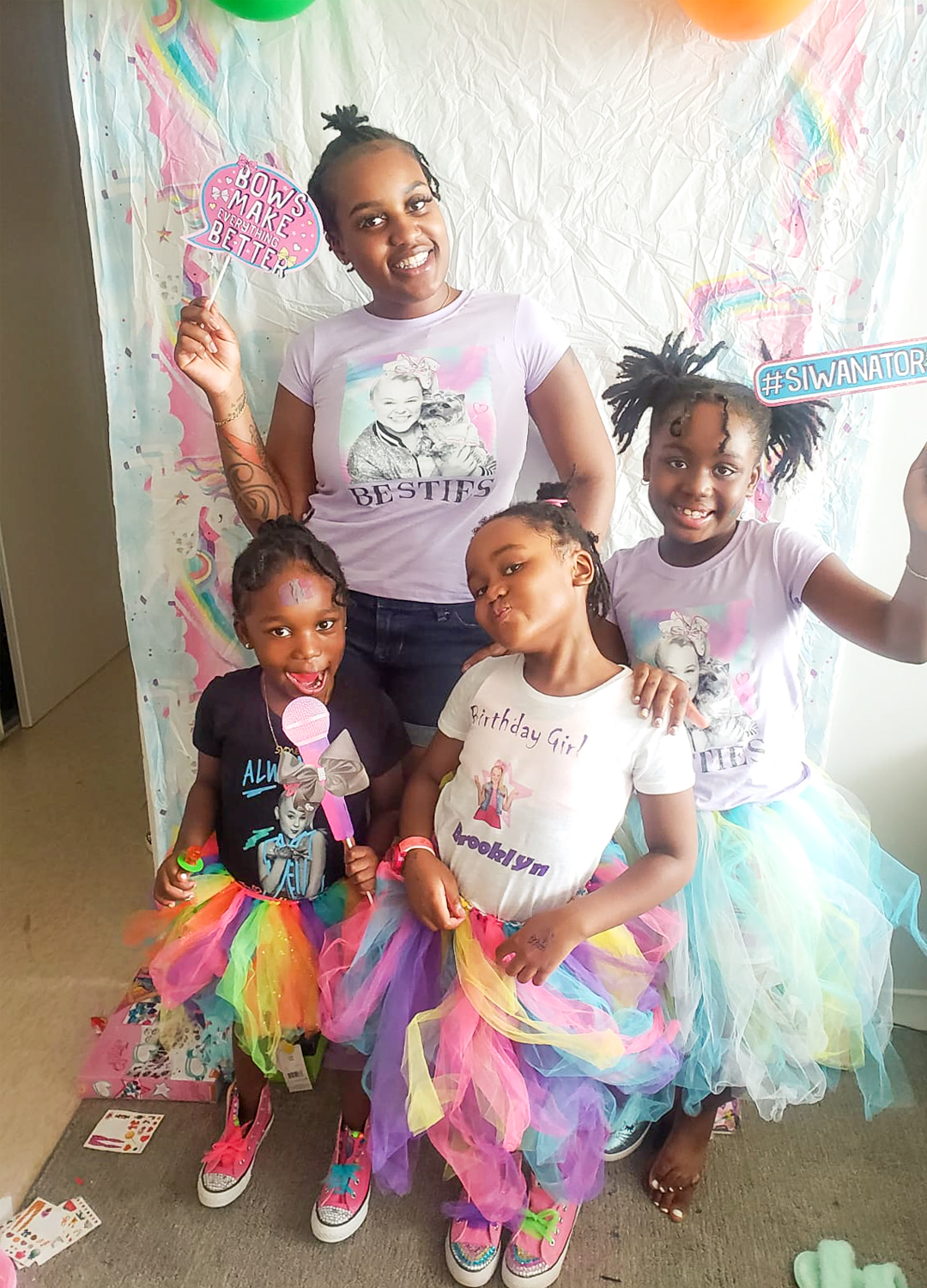
Jamaique Rose celebrates her daughter Brooklyn’s sixth birthday. Brooklyn (centre) has two sisters. Sydney (left) is four years old, while Jamaique’s oldest daughter London (right) is nine.
‘Again, my life turned upside down’
This past summer when Jamaique developed a sore throat, she thought it was COVID-related. She also didn’t rule out a return of leukemia. So after a check at the hospital, she was relieved when her doctor gave her a diagnosis of strep throat.
“It was a better diagnosis than I imagined,” she says.
However, her condition worsened. She was admitted to hospital, and shortly after that, a biopsy at Princess Margaret revealed her cancer had returned.
“Again, my life turned upside down when they told me my leukemia was back,” says Jamaique. “I felt so many emotions all at once — fear, shock, sadness and worry.
“I was immediately booked for more chemotherapy as an inpatient and told that I would need a stem cell transplant to live.”
Since Jamaique’s relapse, her family has been pleading urgently for potential donors to come forward. They are especially hoping that more Black Canadians will join the stem cell registry to increase her chances of finding a match.
The best stem cell transplant outcomes happen when a patient's human leukocyte antigen (HLA) and the HLA of a donor are a close genetic match. Patients with Indigenous, Asian, South Asian, Hispanic, Afro-Canadian, and mixed-race backgrounds find it especially challenging to find a match, because currently, only 32 per cent of prospective donors in Canadian Blood Services Stem Cell Registry are from these diverse groups.
“I encourage people in all communities to understand what this means to patient families,” says Jamaique, who is Black. “I desperately need a Black donor to come forward.”
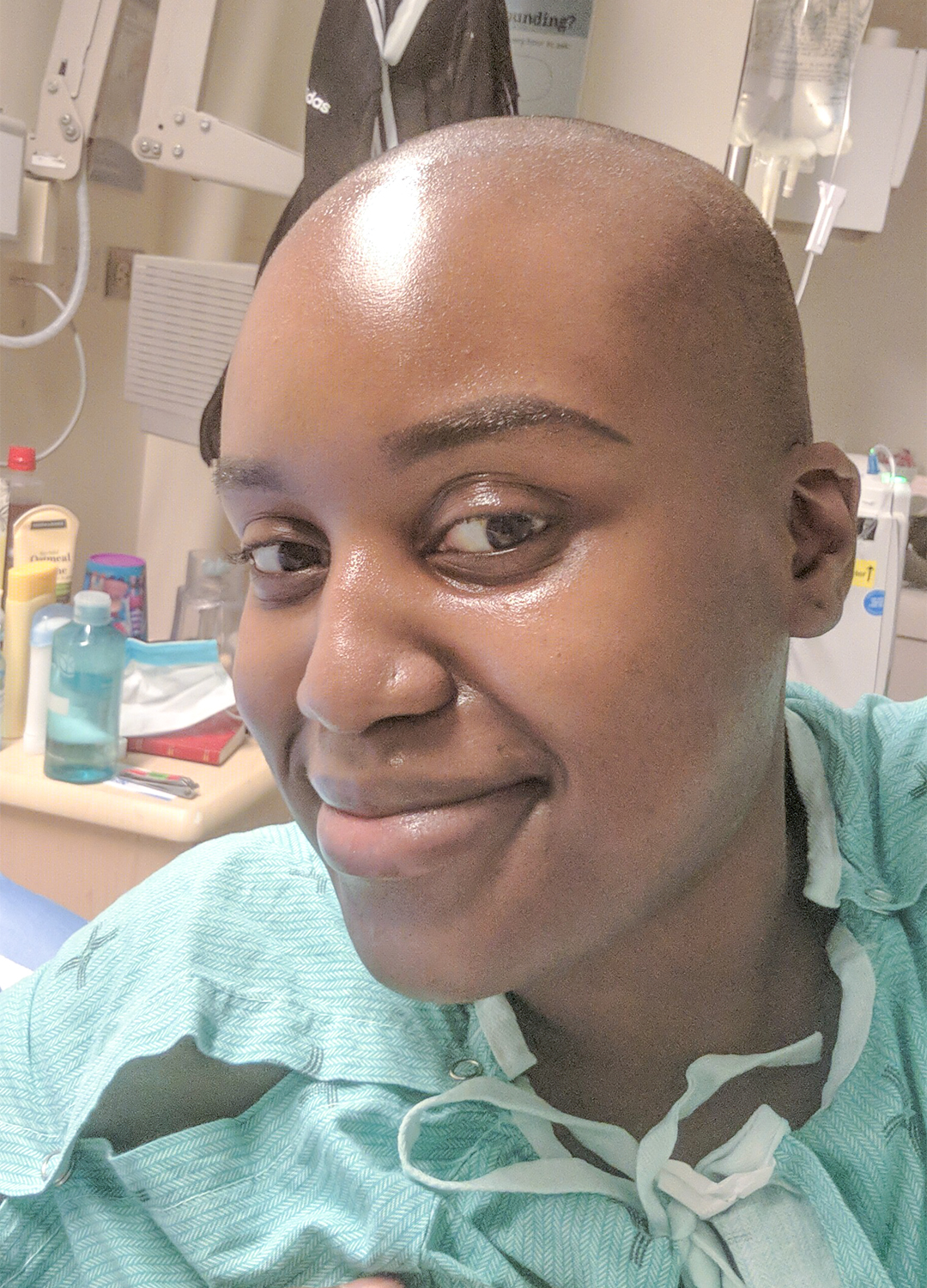
Jamaique Rose smiles in a photo she took for her kids while undergoing treatment at Princess Margaret Cancer Centre. Jamaique is seeking a donor for a stem cell transplant.
The need for committed donors
Jamaique is one of hundreds of Canadian patients who require lifesaving stem cell transplants each year, as a treatment for more than 80 blood cancers and disorders. About 75 per cent of those patients will not find a matching donor within their own families. To survive, they rely on Canadian Blood Services Stem Cell Registry, with its database of healthy volunteer donors and its connections with similar registries around the world.
An additional challenge for patients is that not all those who join the registry agree to donate when called. Only about 50 per cent of those contacted follow through. In some cases, the decision not to donate when called is driven by important health or other personal reasons. However, prospective donors should understand that if one matching donor declines, a delay finding another — if one can even be identified — can put the patient at serious risk
On the stem cell registry? Let us know you’re truly prepared to donate
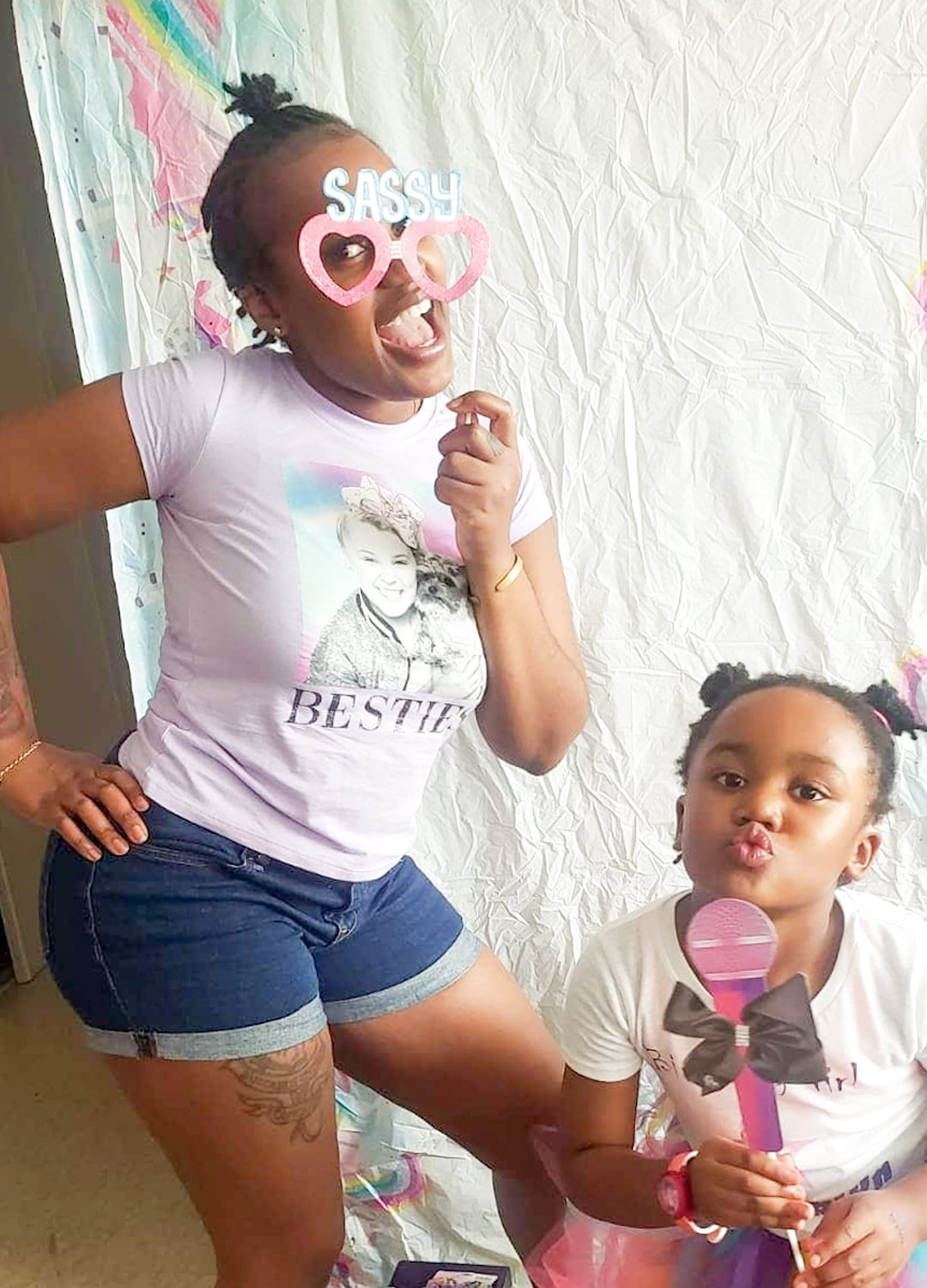
Jamaique Rose, left, will turn 30 and spend Christmas 2020 away from her children while in the hospital receiving cancer treatment. She hopes to get a stem cell transplant soon to be able to spend more years with her three children.
A stem cell transplant could give three children their mother
Jamaique’s oldest daughter, London, has developed anxiety and extreme fears of her mom dying. Hospital admissions have been difficult for London and her sisters, as Jamaique often spends four to six weeks receiving treatments as an inpatient.
“COVID-19 has made it particularly difficult, as my kids are unable to visit me,” says Jamaique. “London is now in counselling to help her cope with the changes and her emotions.”
Jamaique looks forward to the time when she’s cancer-free again. She enjoys baking, and doing arts and crafts with her kids, and hopes to return to normal life with her family.
“A stem cell donation would make a huge difference in my life and theirs,” says Jamaique. “It could mean that my kids get to grow up with their mom.”
We urge healthy Canadians between 17 and 35 years of age to join Canadian Blood Services Stem Cell Registry online and order their swab kit to be delivered in the mail. If you’re already on the registry and no longer wish to be considered as a potential stem cell donor, please contact us to update your status to “no longer committed” in the registry. This change is not permanent. At any time, registrants can change their status to “yes, committed,” or update their contact information, by calling 1 888 236 6283 (1 888 2 DONATE).
